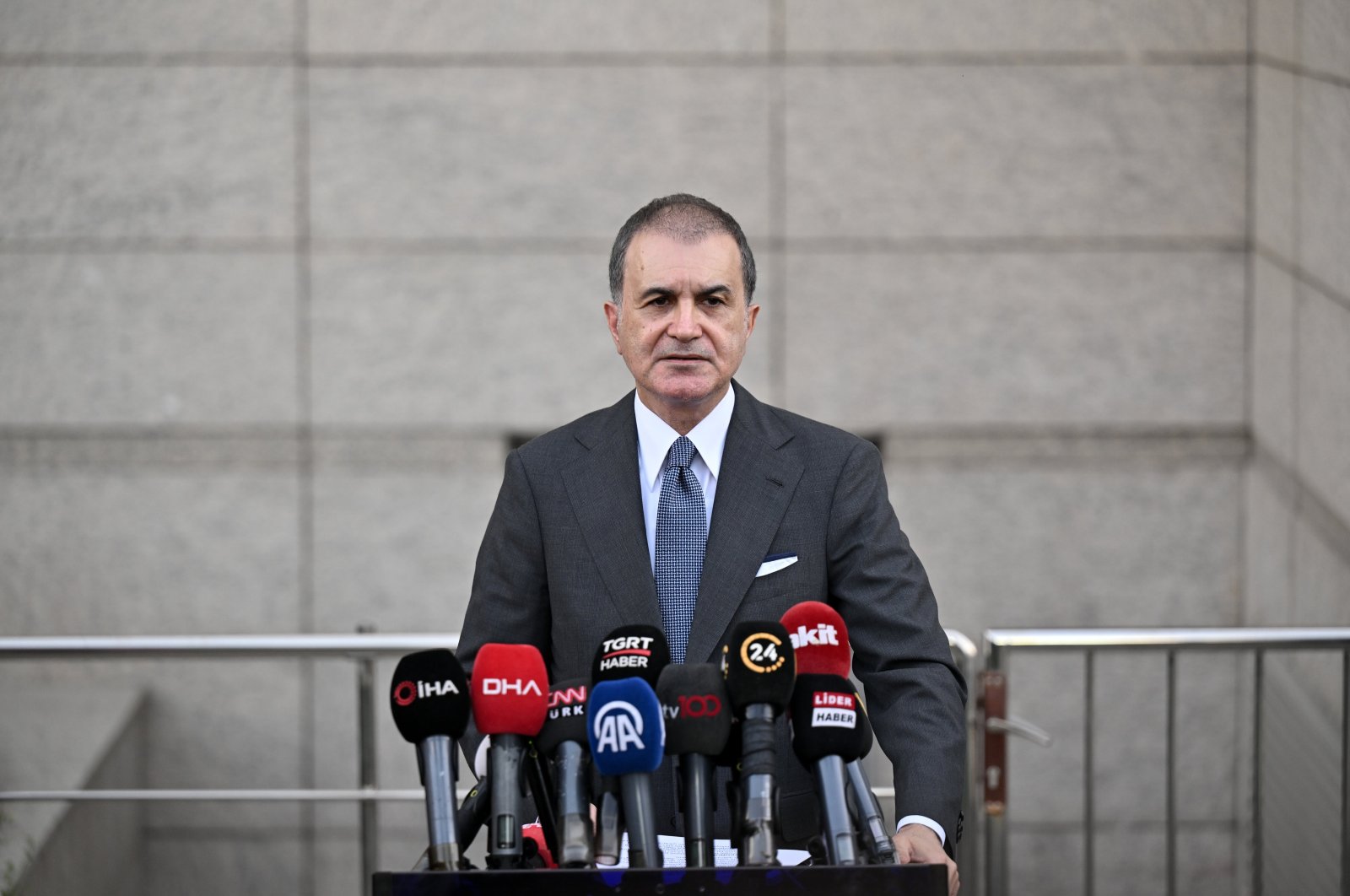
NATO needs to act in line with the principles of the bloc, the spokesman of the ruling Justice and Development Party (AK Party) said Monday, as he highlighted the inconsistencies of some allies regarding their support for terrorist organizations.
"If NATO member-states transfer arms to the [PKK] terrorist group, then this act violates NATO principles,” Çelik told reporters following a Central Executive Committee (MYK) meeting in the capital Ankara. He continued by saying some NATO allies and heads of state make statements that further escalate tensions in the Russia-Ukraine war, which concerns the future of Europe.
Regarding the threat of far-right terrorism, Çelik said anti-Türkiye and anti-Islam sentiment tops the agenda of far-right parties.
"Their motivation targets all values,” he said, adding that Türkiye will bring the issue up in international organizations.
Regarding the PKK terrorist group's Syrian offshoot YPG terrorists, Çelik said Türkiye had opposed their goal to hold so-called municipal elections and continues to oppose support for the terrorist group, which is supported by some Western powers under the guise of allegedly fighting Daesh terrorists.
He noted that their ultimate goal is to establish a terrorist state on the border with Türkiye and that Ankara would immediately intervene if they attempted to do it, which would also pose a threat to Syria's territorial integrity.
"We're closely following terrorist activities in northern Syria and will continue to oppose terrorist presence and pursuit of holding so-called elections," he said.
Under the name of YPG, the PKK terrorist group has grown stronger in the region, particularly in Deir el-Zour province, home to Syria’s largest oil wells, thanks to material support from the United States. The issue strains Turkish-U.S. ties as Ankara warns its NATO ally against aiding terror elements that threaten its national security, something Washington continues to do despite promising to remove the group from the Turkish border area.
The PKK, listed as a terrorist organization by Türkiye, the U.S., Britain and the European Union, is responsible for over 40,000 civilian and security personnel deaths in Türkiye during an almost four-decadelong campaign of terrorism. Since Turkish operations have driven its domestic presence to near extinction, the PKK has moved a large chunk of its operations to northern Iraq where the group operates a stronghold in the Qandil Mountains, located roughly 40 kilometers (25 miles) southeast of the Turkish border in Irbil province. Ankara maintains dozens of military bases there, and it regularly launches operations against the PKK but in recent years, it has battled the YPG in northern Syria where the group has occupied several resource-rich provinces since 2015 after taking advantage of a power vacuum created by the civil war. Washington supports the YPG for what it calls for battle against the terrorist group Daesh in Syria's north.
Since 2016, Ankara has launched a trio of successful counterterrorism operations across its border in northern Syria to prevent the formation of a terror corridor and enable the peaceful settlement of residents: Euphrates Shield (2016), Olive Branch (2018) and Peace Spring (2019). The terrorists control areas near the Syrian-Iraqi border and unconfirmed reports say they travel between the two countries secretly.
Since Jan. 1, 2023, the terrorist group has carried out 560 attacks targeting areas where Türkiye carried out counterterrorism operations in Syria and more than 1,600 terrorists have been eliminated in response. Late January, a U.S.-based journal claimed, citing four sources within the U.S. Defense and State departments, that the White House could fully withdraw from Syria, which could ease some of the strain between Washington and Ankara.
